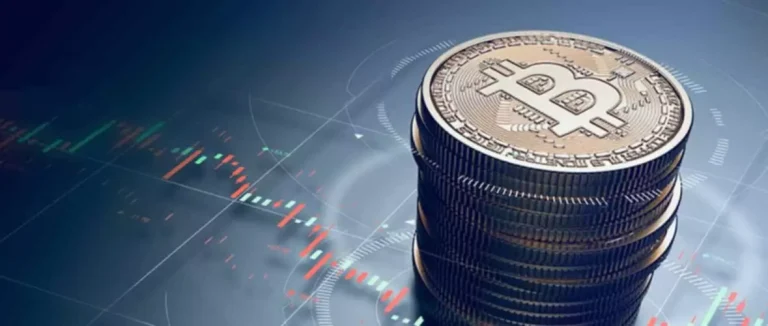How The Good Money Trades: An Inside Look At Institutional Trading
They can also require the most effective value for their trades, which may be troublesome to achieve in a market where the value dynamics of monetary instruments can change rapidly. This difference in dimension has a huge affect on the price of securities, as institutional trades can transfer prices more than retail trades. Recent stories counsel that institutional buying and selling accounts for over 90% of day by day buying and selling volume within the US inventory market. Successful traders additionally make use of threat management methods similar to diversification and hedging to reduce losses. This strategy permits traders to execute trades at lightning-fast speeds and take benefit of market inefficiencies. These establishments have access to vast amounts of capital and make use of institutional trading refined buying and selling strategies to generate profits.
Day Low Buying And Selling Technique For Stocks (complete Amibroker Code)
At the confluence of monetary acumen and technological prowess, institutional strategies forged a prolonged shadow over the worldwide market. With the leverage to enact substantial capital maneuvers and the acuity to make use of refined investment mechanisms, institutional traders architect a lot of the framework within which world markets oscillate. Their strategies delineate a vista where the alignment of financial heft and infrastructural intellect forecast an unprecedented efficiency in shaping market trajectories. It is imperative, due to this fact, for investors of all scales to understand the burgeoning dynamics that institutional behaviors engender in navigating the frequently transforming market arena. The funding in swaps, forwards and so on. provides an edge to the institutional buyers.
Technological Developments For People
Institutional traders typically have access to more resources and data than retail traders, allowing them to execute trades extra efficiently and successfully. This is particularly essential given the big quantities of funds from a quantity of different traders that institutional merchants usually manage. The majority of the institutional gamers make their methods with other goals than the typical retail investor.
Q: What’s The Difference Between Retail Traders And Institutional Traders?
The following desk illustrates the variations between these two categories of traders. Moreover, the securities invested through MFs normally span across a quantity of industries or types. It’s designed to minimize the risk of capital loss, wherein the features from one dilute loss in another security kind. By distinction, a company reorganization is likely to be considered positively if it was not anticipated by the market and if the stock had already been on a long-term slide because of inside company troubles. If a board of administrators all of a sudden ousts an unpopular CEO, for instance, a stock might exhibit short-term upward motion in celebration of the information.

The Difference Between Retail And Institutional Buying And Selling
Institutional traders are continuously adapting their methods to stay forward of the competition. Traders use strategies like mindfulness and meditation to remain calm and focused, even within the face of market turbulence. This allows them to make rational choices and avoid the pitfalls of emotional buying and selling.
What Is The World’s Largest Asset Manager?
These quantitative factors embody any figures discovered on a company’s earnings report, cash circulate assertion, or stability sheet. They can even include the results of financial ratios similar to return on fairness (ROE) and debt to fairness (D/E). Fundamental traders might use such quantitative knowledge to determine buying and selling opportunities if, for example, a company issues earnings results that catch the market abruptly. While institutional and retail traders differ in many aspects, there are areas the place their trading methods may converge. Both teams might use comparable buying and selling instruments and techniques, for example, technical analysis, elementary evaluation, and algorithmic buying and selling.
The Insider’s Guide To Institutional Buying And Selling: Institutional Dealer Vs Retail Trader (updated
Algorithms empowers high-frequency buying and selling, artificial intelligence informs investment decisions, and all are underpinned by strong cybersecurity measures. The repercussions of these advancements are multidimensional; not only do they redefine the approach and capabilities of professional traders, but in addition they culminate in a considerable global market impact. Such developments promise to steepen the trajectory in the path of an era where effectivity and precision are the linchpins of monetary mastery. If a retail trader continues to generate positive returns and accumulate more capital from different investors, they may organize into what is basically a small funding fund. This growth can proceed, limitless, to the point where the retail trader is now an institutional trader. Retail traders usually spend cash on shares, bonds, options, and futures, and they have minimal to no entry to IPOs.
The Role And Influence Of The Institutional Trader

These traders understand that even the most well-researched trades can go mistaken, so they employ strict risk management methods to guard their capital. Quantitative fashions are mathematical fashions that use statistical methods to analyze market information. Institutional merchants use these fashions to predict future worth actions and identify trading opportunities. These fashions are constantly refined and up to date based on new knowledge, making certain that institutional traders stay ahead of the curve.
Equities have experienced the fastest progress over the past generation, as in 1980, solely 18% of all institutional belongings were invested in equities. It’s essential to note that institutional forex trading is also a big a half of institutional buying and selling. Their actions also can influence market liquidity, as they might select to extend or lower liquidity depending on their funding technique. These traders can also take the other aspect of a trade, shopping for when others are promoting and selling when others are buying, in order to steadiness their portfolios by modifying their holdings. Institutional traders, then again, can minimize costs by sending trades to the purpose where there could also be no one else to trade with, or by modifying the monetary instruments themselves. Institutional traders should buy or promote large quantities of securities without considerably affecting their costs.
- The Massachusetts Investors Trust got here into existence in the Twenties and is mostly recognized as the first open-end mutual fund to operate in the United States.
- Their function is to assist the market perform by ensuring there may be sufficient quantity so trading is efficient.
- This disciplined method allows them to climate market volatility with out suffering catastrophic losses.
- They spread their investments across a number of assets and thoroughly calculate the scale of each trade to minimize potential losses.
- With the leverage to enact substantial capital maneuvers and the acuity to make use of subtle investment mechanisms, institutional traders architect a lot of the framework inside which world markets oscillate.
- Institutional buyers are typically considered to be more proficient at investing because of the assumed professional nature of operations and larger access to firms due to size.
They can even profit from using superior buying and selling platforms, preserving observe of market news, and developing a stable danger management plan. Joining trading communities and attending webinars or workshops can also assist enhance their trading skills. Due to the big volumes of trades that institutional traders execute, they’ve a big impact on market prices. Their trades can shift provide and demand dynamics, influencing value movements and market liquidity.
When evaluating the panorama of economic buying and selling, it’s evident that institutional merchants operate with distinct benefits. The sheer institutional buying and selling quantity and the ability to barter buying and selling charges set these entities apart from their retail counterparts. Large monetary institutions usually handle monumental trading volumes every day, which grants them leverage in negotiations, resulting in lowered costs on a per-transaction basis. The distinction turns into palpable when exploring the distinction between institutional merchants and retail traders. Retail merchants surf the market’s waves with their private capital, typically driving shorter, extra agile funding methods. Today, both cohorts of merchants are indispensable to the liquidity and vitality of the markets, every with their own set of advantages and limitations.
For institutional traders, dark swimming pools are a valuable tool for sustaining their aggressive edge. The collective energy of retail dealer communities, fuelled by social media discussions, can impression asset prices. The “Reddit effect” exemplifies how retail trading, through online boards, can problem conventional market dynamics. Open-end funds have nearly all of assets inside this group, and have experienced rapid development over the previous few many years as investing within the fairness market grew to become extra well-liked. However, with the speedy growth of ETFs, many traders are actually turning away from mutual funds. Institutional investors include public and private pension funds, insurance coverage companies, financial savings establishments, closed- and open-end investment companies, endowments, and foundations.
It is obvious that institutional and retail traders feed into a cycle that is essential for the wholesome functioning of the markets. They play interlinked but distinct roles within the broader market dynamics, with each influencing investment methods and contributing to the tapestry of buying and selling quantity that defines financial markets right now. Retail merchants are people who commerce with their personal capital, aiming to develop their wealth by way of investments in stocks, bonds, choices, and futures.
Hakan Samuelsson and Oddmund Groette are independent full-time merchants and buyers who along with their group handle this web site. The Quantra courses are self paced courses starting from the ideas of monetary markets trading methods to algorithmic and quantitative trading practices. Also, an institutional dealer benefits by doing a PhD in mathematics, economics, physics and quantitative finance. With the deep-rooted information within the talked about subjects, advanced data of quantitative calculations is certain to be there which makes for a profitable institutional dealer.
But there are particular publications that report institutional trading actions, such as Bloomberg, Thomson Reuters, Factset, Marketwatch, and so forth. Executing market orders are actually one of the essential issues for an establishment. For instance, the Medallion Fund led by Jim Simons makes use of particular algorithms to put trades to keep away from slippage and not to transfer markets. The financial trade has long craved a glance inside Simons’s secretive hedge fund, Renaissance Technologies. As Renaissance became a serious player in the monetary world, its executives began exerting influence on other areas.
Read more about https://www.xcritical.in/ here.

Leave a Comment